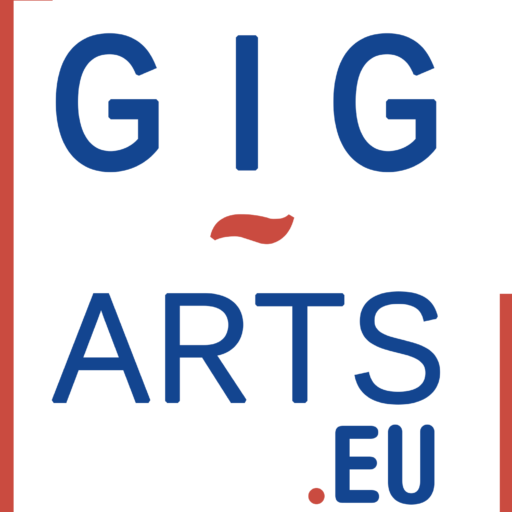Thirty Years of Multistakeholderism in Internet Governance: Assessments and Prospects
Global Transformations and Governance Challenges Programme
The Hague Program on International Cyber Security
Leiden University
Call for Papers
Deadline: 2 February 2024
GIG-ARTS
The European Multidisciplinary Conference on Global Internet Governance Actors,
Regulations, Transactions and Strategies (GIG-ARTS) assembles scholars and practitioners in an annual conference to debate the latest research on governing the global internet. Each conference highlights a main theme, as well as including contributions on other aspects of global internet governance.
Earlier GIG-ARTS meetings have addressed themes of “Global Internet Governance as a Diplomacy Issue” (Paris, 2017), “Overcoming Inequalities in Internet Governance” (Cardiff, 2018), “Europe as a Global Player in Internet Governance” (Salerno, 2019), “Online Information Governance” (Vienna, 2021), “Global Internet Governance and International Human Rights” (Nicosia, 2022), and “Governance of Cyber Security” (Padua, 2023).
GIG-ARTS 2024
The Eighth GIG-ARTS Conference, to be held at The Hague Campus of Leiden University, takes as its main theme “Thirty Years of Multistakeholderism in Internet Governance: Assessments and Prospects”. The multistakeholder principle has spread across governance of the internet (and other global issues) since the 1990s. After three decades of experimentation and development, how has this approach to ruling the internet fared? What promises have been fulfilled, and what problems persist? How can and should multistakeholder governance of the
internet be taken forward into the future?
In contrast to traditional multilateralism, which approaches global governance through formal intergovernmental organisations, multistakeholder arrangements bring together sectoral groups who “have a stake” in a given policy issue. Thus, rather than assembling representatives of nation-states, multistakeholder governance works through collaborations among academia, business, civil society, governments, technical community, etc.
Multistakeholder global internet governance is most formally institutionalised in policymaking at the Internet Corporation for Assigned Names and Numbers (ICANN). The principle also underpins workings of the Internet Governance Forum (IGF) at its global, regional, and national levels, as well as organisations like the Internet Society (ISOC). Other nongovernmental global internet governance arrangements such as the Internet Engineering Task Force (IETF) and Regional Internet Registries (RIRs) continually involve academia, business, civil society, and governments alongside their main technical participants. Various United Nations processes, especially related to cybersecurity and internet governance, are also embracing the multistakeholder principle with pervasive consultations of nonstate actors.
Multistakeholderism has been much debated in the internet ecosphere as well as global governance more broadly. Proponents argue that putting stakeholders at the heart of global resource management makes for more effective, democratic, trusted, and fair governance.
Critics argue that multistakeholder processes are on the contrary inefficient, unaccountable, and subject to special-interest capture. Yet what does the record of thirty years actually show, and what are the prospects for the years to come?
The Eighth GIG-ARTS Conference therefore especially welcomes papers and panels that address the sorts of questions listed below. We hope to bundle a collection of contributions in a journal special issue and/or an edited volume.
- theorising multistakeholderism in global internet governance
- typologies of multistakeholder internet governance
- comparisons of multistakeholder governance in internet and other policy fields
- comparisons of multistakeholderism with other models of internet governance (e.g. digital constitutionalism, digital sovereignty)
- multistakeholderism as a discourse, narrative, and ideology of internet governance
- general evolution of the multistakeholder approach in internet governance
- experiences of particular multistakeholder arrangements in internet governance
- (in)effectiveness of multistakeholder processes in internet governance
- multistakeholderism and (deficits of) democracy in internet governance
- equality and/or discrimination in multistakeholder internet governance
- human rights and multistakeholder internet governance
- collaboration and/or competition between multilateralism and multistakeholderism
- multistakeholderism and geopolitics in internet governance
- the role of governments in multistakeholder internet governance
- legitimacy (empirical, legal, and normative) in multistakeholder internet governance
- accountability (and its limits) in multistakeholder internet governance
Of course, as always, next to the theme the GIG-ARTS conference also welcomes paper and panels on other aspects of internet governance.
Submission information
Authors are invited to submit their extended abstracts (no longer than 500 words), describing their research question(s), theoretical framework, approach and methodology, expected findings or empirical outcome. Submitted abstracts will be evaluated through a peer-review process. Abstracts and authors’ information should be submitted through
https://conftool.gig-arts.eu.
Key dates - Deadline for abstract submissions: 2 February 2024
- Notification to authors: 29 March 2024
- Deadline for author confirmation (at least one author must register for a selected
presentation to appear on the programme): 12 April 2024 - Programme publication: 22 April 2024
- Registration deadline: 22 May 2024
- Conference dates: 3-4 June 2024
Co-Sponsors - Global Transformations and Governance Challenges Programme, Leiden University
- The Hague Program on International Cyber Security, Leiden University
- Internet & Communication Policy Centre, University of Salerno
Organizing Committee - Meryem Marzouki, Global Internet Governance & Digital Rights Expert
- Mauro Santaniello, Internet & Communication Policy Centre, University of Salerno
- Jan Aart Scholte, Global Transformations and Governance Challenges, Leiden University
(Co-Chair) - Tatiana Tropina, Cyber Security Governance, Leiden University (Co-Chair)

Leave a Reply